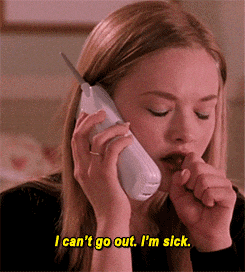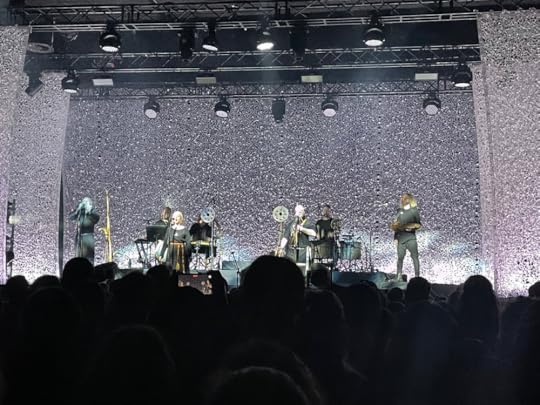Sarah Kate Ishii's Blog
June 26, 2025
The Joy of Being Unknown
March 27, 2025
Why so many children's books are exhausting to read (and what I'm doing about it)
March 13, 2025
Launching My Podcast: From the Author’s Chair!
February 6, 2025
Writing milestone - 100,000 words of Iron Angels
Today I want to share with you my latest writing milestone: 100,000 words reached in my current high fantasy WIP, Iron Angels.
This book was actually planned to be about 100,000 words, but if you all know me as well as you probably do by now, you'll know I'm a MASSIVE overwriter, who then adds in details in editing rounds to get EVEN MORE overwritten, and then has massive cutting stages.
The aim? To be left with intense, deep worldbuilding and core of the book, and only the best of the best left for readers to enjoy.
So I'll probably end up taking it to 140,000 words with drafting and then detail adding, and then hope to cut back to about 100,000 - 110,000. Right on plan!
If you saw my latest newsletter, you'll know that my goals are now to self-publish Iron Angels, and that my hopes are to do it this year. That means I've got to get this last stage of the draft done ASAP, go back through my notes to add in the details I've prompted myself to add back in, do my usual rounds of self-revisions, and then get it in with one of my favourite trusted people for a developmental edit.
So, for now, cheer me on as I reach the finish line. We're storming towards the grand climax now, and this one needs clever twists and political intrigue, so I'll be cracking open the history books and Wikipedia for help getting that bit right. I'll let you know if anything weird and wonderful comes up.
Until then, next milestone will be the great 'Draft finished!' one, so please keep an eye out for that soon. I'm honestly at the point where this is all I can think about right now, and it's so hard to have to do anything else.
Work, what work? I have a job?! But Celyn's about to—

February 3, 2025
February
It's been a long time since I wrote a poem. This one's inspired by a challenge a dear friend's husband set her because she was feeling blue in the dragging on winter, and when she told me, lines just swam in my head as if it needed to come out. Though I live in Australian summer right now, my house is always freezing in winter (old Australian builds), so I empathise with those of you living in winter time!
February: the days are short but the winter drags on,
Our minds wander, drifting, longing for the cold to be done,
And we shuffle like ghosts as time blends day with day,
Motivation fades, creativity too—gone, just drifted away.
It's times like this that I wish for long summer days,
Instead my city's so dull, muted, nothing but greys,
Then I see my love’s red cheeks, our children’s bright noses,
And we laugh at the colour - so red, like Ma's summer roses.
I try to stay present, embrace these walks through the park,
Rugged up in coats, gloves, long boots, against the chill of the dark,
With our bellies full of comforting hot winter food,
Blowing our breath like dragons to brighten our mood.
Some days we kick boots through leaves sodden with rain,
Yet others we crunch over them as they freeze over again,
Some days we hide under blankets, snug in warm, cosy hugs,
Hands wrapped around hot cacao in huge steaming mugs.
We pass time as best we can—music, art, trying new food,
Anything to keep at bay that long, dark winter's mood,
But need we spend winter hiding in small, heated rooms,
Or should we enjoy kicking through leaves, dancing to our own winter tunes?
Writing by Voice
Okay. Fitting in quality writing time is the challenge. Here's a solution.
Voice memos. Dictating into the program and (ideally) watching incredible word count fly. (SOME weird mistranslations, but that's okay. Easy to fix in editing rounds.)
But, anyone else like me and find it embarrassing or awkward to speak it aloud? And whenever I say it, my ideas don't flow so well as when typing?
Here's the truth
Voice memos are a different skill to typing, and it’s totally normal to feel awkward at first. But it’s a learnable skill, and if it helps increase your word count, it might be worth experimenting with!
Maybe start super casually, like:
Narrating ideas, not prose → Instead of trying to “write” out loud, just brain-dump ideas: “Okay, in this scene, the character is feeling X because of Y, and maybe she does Z…”
Speaking in fragments → You don’t need full sentences. Even half-formed thoughts can help you get unstuck later.
Doing it in private first → If embarrassment is a barrier, try it when no one’s around just to get used to your voice.
No pressure to make it perfect—it’s just another tool to test out. You might end up hating it, or it might surprise you.
I'm going to try it out. Try to overcome the awkwardness and see if I can make my ideas flow smoother spoken too. (Might help with my awkwardness talking in reels or things too!)
Would love to hear if anyone else tries it out too and how they go.
#AmWriting #VoiceMemos #AuthorLife
Finding Small Moments For You
Where are the small slots of time in your day you don’t even realise exist?
We often feel like there’s not enough time for what we want to do.
After work, commuting, chores, family or pet responsibilities, and personal hygiene swallow up most of our day, what’s left?
Maybe you manage to work out a few times a week, but that’s a stretch, and everything else sucks up time.
Lately, I’ve been carving out time for small habits.
On my commute, I squeeze in extra writing by typing on my phone while I walk to the train and during the ride. It’s slower, harder—but that extra word count adds up.
At work, I use breaks for five minutes of Japanese vocab practice or engaging on my author socials. A few comments while walking to fill my water bottle. A quick round of Anki vocab reviews.
On the way home, I study, listen to podcasts, or read.
In the evening, I journal and stretch with my 2YO. He scribbles while I write. He attempts stretches while I stretch. It’s fun, and I get to do it too!
These are all tiny moments—5 to 15 minutes here and there. Sometimes less. But over time, they build up.
Progress feels slow. But then I look back—when I finish an online course, a book, or when I hit the 75% mark in my WIP and get to that grisly moment all-hell-breaks-loose and I just want to keep writing. When I don't want my commute to end and start working yet because I'm in the flow.
So where are those small moments in your day? How can you make them easier to use?
Maybe you work from home and could sneak in workouts between tasks—Pomodoro timer, a few sets of weights in the break. By the end of the day, you’ve done a full workout.
My husband keeps a book in the kitchen. While waiting for the kettle to boil or food to heat, he reads a few paragraphs.
Little by little, these moments add up.
And often, the time we think we don’t have is hiding in plain sight.
So, where are those moments for you? And how do you want to enjoy them?
I'd love to see a world where we all get to do little snippets of things that bring us joy and remind us life isn’t just one endless cycle of work and responsibilities.
#LifeLessons #SmallHabits
January 27, 2025
"Go home and f**king sing"
Last night, I went to see Wardruna live with my friend Kevin, and honestly, it was one of the most incredible musical experiences of my life.
The music wasn’t just something you heard—it was something you felt. It went right through you, connecting to something ancient, something deeply human. Something primal. And the way they used traditional instruments to create such unique, raw, and powerful sounds was just mind-blowing.
The traditional horns? Unreal.


Einar Selvik, Wardruna’s founder, shared some thoughts that really hit home for me. He said:
"When you look far back enough, music, beats, rhythms, and even instrument styles are so similar across all continents. Our similarities are more than our differences."
He’s so right. Music has always been something that connects us all. He went on to say:
"Let’s stop this cultural pissing contest. It’s not about who can piss the farthest or which culture is better—they’re all good."
RIGHT?!
I love that perspective. Music transcends all that—it’s something humans have done since the beginning of time, something we can all share no matter where we come from or what language we speak. It’s just us, at our core.
Like writing. Like stories. Like dancing. Like art. The creative parts that make us human. That help us thrive.
The way he put it?
"Go home and fucking sing!"
Yes! Because singing, music, and expression make the world a better place.
And they make you feel better too.
Try it.
For me, this concert wasn’t just an amazing night—it was also the perfect inspiration for a project I’ve been working on that I can't wait to share with you all. I’m currently writing a calm Nordic-set three-part contemporary fantasy novella series inspired by the myths, landscapes, and old gods of this part of the world. Wardruna’s music felt like the ultimate soundtrack to bring that world to life.
I walked away from that night feeling so inspired and connected to something bigger than myself. If you have the chance to see Wardruna live near you, I hope you'll take it and go.
If music teaches us anything, it’s that we’re more alike than we are different—and that’s something worth holding onto.
So, here’s my takeaway: Go home and sing. Write. Create. Do whatever it is that makes you feel alive and connected to the world around you.
What’s something that’s inspired you lately? Let me know—I’d love to hear about it.
Go home and f**king sing
Last night, I went to see Wardruna live with my friend Kevin, and honestly, it was one of the most incredible musical experiences of my life.
The music wasn’t just something you heard—it was something you felt. It went right through you, connecting to something ancient, something deeply human. Something primal. And the way they used traditional instruments to create such unique, raw, and powerful sounds was just mind-blowing.
The traditional horns? Unreal.


Einar Selvik, Wardruna’s founder, shared some thoughts that really hit home for me. He said:
"When you look far back enough, music, beats, rhythms, and even instrument styles are so similar across all continents. Our similarities are more than our differences."
He’s so right. Music has always been something that connects us all. He went on to say:
"Let’s stop this cultural pissing contest. It’s not about who can piss the farthest or which culture is better—they’re all good."
RIGHT?!
I love that perspective. Music transcends all that—it’s something humans have done since the beginning of time, something we can all share no matter where we come from or what language we speak. It’s just us, at our core.
Like writing. Like stories. Like dancing. Like art. The creative parts that make us human. That help us thrive.
The way he put it?
"Go home and fucking sing!"
Yes! Because singing, music, and expression make the world a better place.
And they make you feel better too.
Try it.
For me, this concert wasn’t just an amazing night—it was also the perfect inspiration for a project I’ve been working on that I can't wait to share with you all. I’m currently writing a calm Nordic-set three-part contemporary fantasy novella series inspired by the myths, landscapes, and old gods of this part of the world. Wardruna’s music felt like the ultimate soundtrack to bring that world to life.
I walked away from that night feeling so inspired and connected to something bigger than myself. If you have the chance to see Wardruna live near you, I hope you'll take it and go.
If music teaches us anything, it’s that we’re more alike than we are different—and that’s something worth holding onto.
So, here’s my takeaway: Go home and sing. Write. Create. Do whatever it is that makes you feel alive and connected to the world around you.
What’s something that’s inspired you lately? Let me know—I’d love to hear about it.
January 12, 2025
Why Plain Language is Powerful: Lessons from a Writer
Every writer has been there. Growing up, we were drawn to big, fancy words and intricate sentences, eager to dazzle readers. We wanted them to at our brilliance, as if we’d memorised the thesaurus.
[Insert smug childhood faces here!]
But as I grew as a writer, I learned that the most impactful writing is often the simplest.
✅ Clear, simple words
✅ Sentences that flow effortlessly
✅ Writing that feels like the author is speaking directly to you.
The magic of writing lies in communicating ideas in a way that feels approachable and digestible for any reader.
I recently received a compliment from a colleague who said they loved how easy it was to understand what I wrote. To me, this is one of the highest forms of praise as a writer.
It doesn't matter whether I’m working on business government communications, educational materials, or stories that transport readers to fantastical worlds, my aim is the same: to connect and communicate.
I’ve seen it across every industry I’ve worked in—business, the public sector, education, e-commerce, and publishing. The truth is, we all have complex ideas to share. But our job as writers is to take those ideas and make them feel simple, clear, and human.
♀️ After all, people won’t support a government project they don’t understand.
♀️ Readers won’t connect with a story they can’t follow.
♀️ Customers won’t trust a brand that hides its message in jargon.
So, here’s my challenge to you (and a reminder to myself).
When you write—email, blog post, or book chapter—ask yourself:
How can I make this as clear and engaging for the reader as possible?
Because, as the adage goes:“If you can’t explain it to a five-year-old, do you even understand it yourself?”
Plain language isn’t just a skill. It’s the best thing you can do for your readers.
As a fantasy author, this lesson holds true in storytelling too. The most intricate worlds are best revealed in simple, relatable ways. Even the most magical ideas need a touch of humanity and every day life to truly shine.



